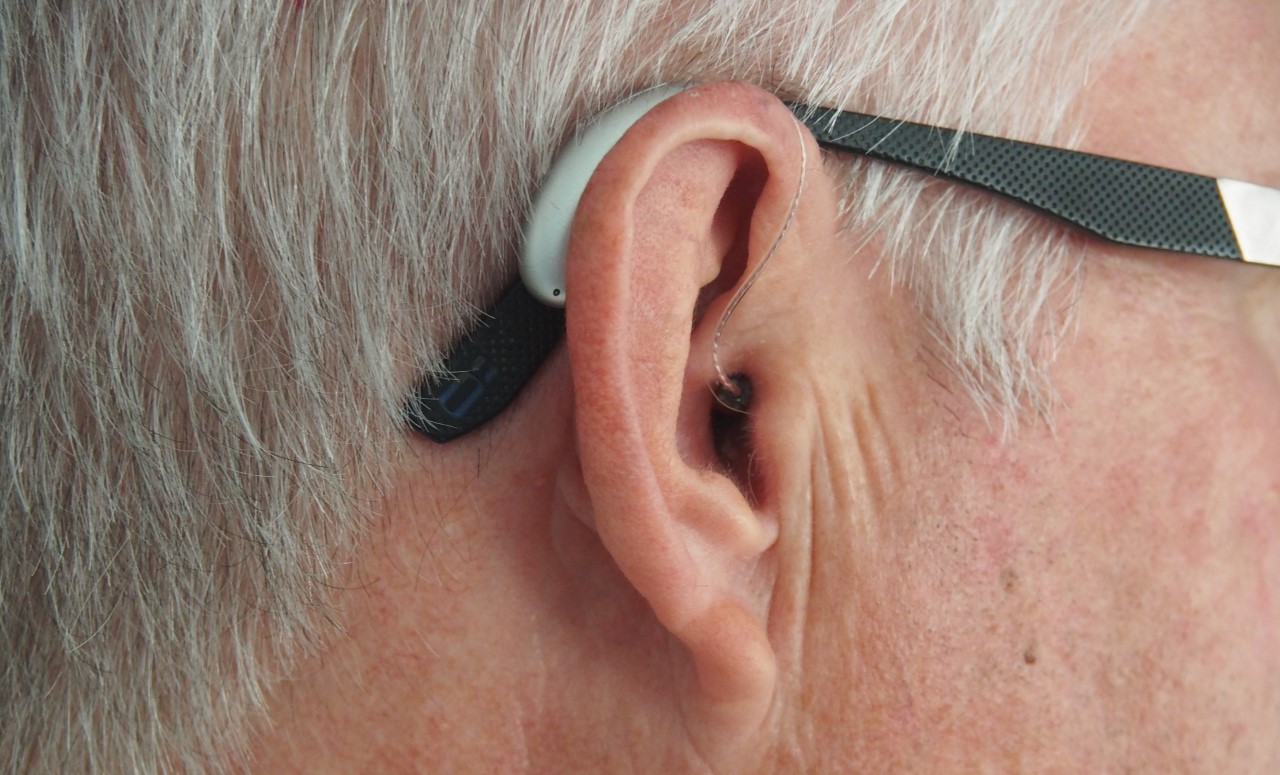Age-Related Hearing Loss: Signs, Causes, Treatment and Prevention

Age-related hearing loss, also called presbycusis, is the gradual loss of hearing in both ears as a person ages. One in three adults over the age of 65 and nearly half of adults over 75 experience hearing changes.
This type of hearing loss is usually gradual so many people don’t realize that their hearing is declining. Others may find it difficult to admit that they are experiencing these age-related changes. Although hearing loss can be a normal part of aging, no one needs to live with the symptoms. Left untreated, hearing loss can significantly impact a person’s quality of life and lead to increased social isolation, depression and anxiety. Age-related hearing loss can also cause safety concerns if an individual is unable to hear smoke alarms, car horns or other important alerts. Balance can also be affected which can increase the risk of falls. If you or a loved one are concerned, here’s more on the symptoms, causes, treatment options and prevention efforts.
Symptoms
The symptoms of age-related hearing loss vary and may range from mild to severe. The most common signs include:
- Struggling to follow in-person conversations—especially with multiple people and in noisy areas
- Being unable to understand phone conversations
- Increasing the television, radio or phone volume louder than normal
- Difficulty hearing the voices of children or women
- Difficulty hearing household sounds such as doorbell, phone or appliance alarms
- Ringing, roaring or hissing sound (tinnitus) in one or both ears
- Finding certain sounds particularly loud or annoying
The symptoms of hearing loss may resemble other medical conditions. Always consult your doctor for an accurate diagnosis. If you experience sudden or dramatic hearing loss, this is an emergency that requires immediate medical attention. Sudden deafness can be related to a neurological disorder, head trauma or infection.
Causes
Changes in the inner ear often begin in the late 30s and early 40s and progress over time. Many people experience a combination of age-related changes along with lifestyle, genetic and environmental factors.
Age-Related Causes
- Changes in the structure of the inner ear and blood flow to and from the ear
- Changes in the way the brain processes speech and sounds
- Impairment of the nerves responsible for hearing
- Natural breakdown of hair cells in the inner ear
Other Contributing Factors
- Health conditions such as diabetes or heart disease
- Problems with circulation
- Side effect from certain medications
- Long-term exposure to loud noises
- Family history of hearing loss
- Infection or build-up of ear wax
- Smoking
Diagnosis and Treatment
If you have any symptoms of age-related hearing loss, your healthcare provider will complete a full physical exam to rule out other causes. They may also use a lighted scope to check for damage to the eardrum, a blockage of the ear canal, inflammation or an infection. If they can’t find a cause for your symptoms, and you are diagnosed with age-related hearing loss, you will be referred to an audiologist for a hearing test. The hearing test will determine the amount and severity of your hearing loss. From there, possible treatment options include:
- Hearing aids
- Cochlear implants
- Assistive devices like telephone amplifiers or smartphone apps
- Training in sign language or lip reading
- Prevention methods for too much wax in the outer ear
You may also require treatment for any depression, anxiety and social withdrawal that can occur alongside this condition.
Prevention
Age-related hearing loss is irreversible, so prevention is important. Here’s how to protect your hearing and reduce your chance of a decline as you age:
- Control your blood sugar if you have diabetes
- Control your blood pressure if you have hypertension
- Keep the volume of earbuds and headphones at a safe level
- Wear ear protection when you can’t avoid loud sounds
- Seek medical attention for ear infections
- Don’t smoke
Most of us will experience some level of hearing loss as we get older. By staying aware of the signs and getting the right treatment you can manage your condition and continue to live a full and active life.
If you enjoyed this article, you may also like to read:
